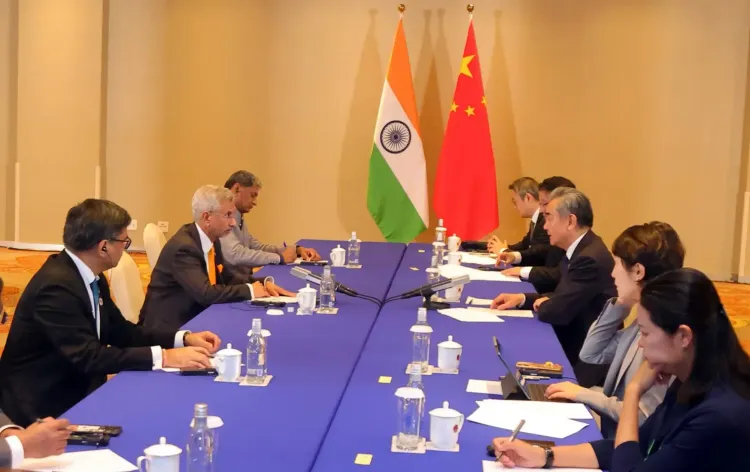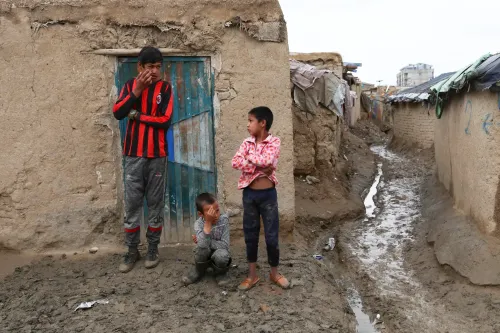Why Did India Issue a Strong Demarche to China Over Arunachal Woman's Harassment?

Synopsis
Key Takeaways
- India protested strongly against China regarding the detention of an Indian-origin individual.
- Chinese officials harassed the passenger over claims regarding her birthplace.
- International aviation laws were violated in this incident.
- Indian government intervention was crucial in resolving the situation.
- Rights of Indian travelers must be protected during international journeys.
Beijing/New Delhi, Nov 24 (NationPress) India has lodged a strong protest with the Chinese government, both in Beijing and Delhi, following the reported detention and harassment of a UK resident of Indian origin from Arunachal Pradesh by Chinese immigration officials at Shanghai Pudong Airport. This incident, which occurred on 'absurd grounds,' has raised significant concerns, as confirmed by sources on Monday.
Prema Wangjom Thongdok, who was en route from London to Japan and had a planned three-hour layover, found herself trapped for 18 hours after Chinese authorities deemed her passport 'invalid' because it listed Arunachal Pradesh as her birthplace.
According to Thongdok, immigration officials detained her for hours, insisting that 'Arunachal Pradesh is part of China.'
High-level sources reveal that India reacted promptly, issuing a strong demarche to the Chinese authorities in both Beijing and Delhi on the day the incident occurred. The Indian Consulate in Shanghai also intervened, providing essential support to the stranded traveler.
It was emphasized that the detention of the passenger was based on 'absurd grounds.' Arunachal Pradesh is undeniably Indian territory, and its residents are fully entitled to hold and travel with Indian passports. Furthermore, it was noted that the actions of the Chinese officials contravened international civil aviation conventions, including the Chicago and Montreal Conventions. Such actions by the Chinese side create unnecessary hurdles in the ongoing efforts to restore normalcy in bilateral relations, as stated by a senior official.
Thongdok reported that several officials and staff from China Eastern Airlines ridiculed her, laughed at her predicament, and even suggested that she 'apply for a Chinese passport.'.
What was intended to be a straightforward transit turned into a prolonged confinement in the airport's transit area, where she was reportedly denied clear information, adequate food, and basic facilities, according to an NDTV report.
Thongdok alleged that her passport was confiscated, preventing her from boarding her onward flight to Japan, despite holding a valid visa.
Restricted to the transit zone, she claimed she was unable to rebook tickets, buy meals, or move between terminals.
She further alleged that officials pressured her to purchase a new ticket specifically with China Eastern Airlines, implying that her passport would only be returned upon doing so, leading to financial losses from missed flights and hotel reservations.
After managing to contact the Indian Consulate in Shanghai through a friend in the UK, Indian officials intervened and assisted her in departing the city on a late-night flight.
In a letter addressed to Prime Minister Narendra Modi and senior officials, Thongdok described the incident as a 'direct affront to India's sovereignty and the citizens of Arunachal Pradesh.'
She urged the Indian government to address the issue with Beijing, demand accountability and disciplinary action against the immigration and airline personnel involved, and seek compensation.
Additionally, she requested assurances that individuals from Arunachal Pradesh would not encounter such challenges when traveling internationally in the future.









